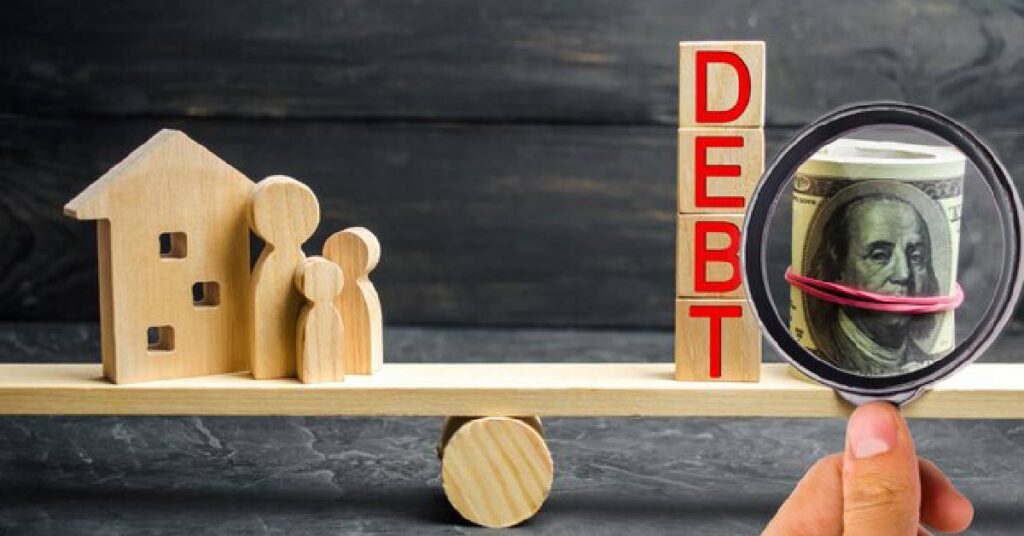Bankruptcy is a scary word, and for those who have gone through it, it was most likely a last-ditch effort to regain financial stability. While it’s true that bankruptcy can provide a clean slate, the real challenge starts afterward.
In this blog, we’ll examine useful methods for relieving debt and establishing financial security to assist individuals in rebuilding their lives after bankruptcy.

Understand Your Financial Situation
The first step in your post-bankruptcy journey is to have a clear understanding of your current financial situation. Take a close look at your income, expenses, and the debts that survived bankruptcy, if any, such as mortgages, car loans, IRS debts, child support, etc…. This data is crucial for creating a workable budget and developing your post-bankruptcy financial growth and stability plan.
Create a Realistic Budget
A well-structured budget is your best friend on the path to financial recovery. Your budget should cover all necessary expenses, such as housing, utilities, groceries, and transportation, while also providing for regular contributions toward savings. Make sure it’s realistic and sustainable in the long term.
Build an Emergency Fund
Emergencies are unpredictable and can happen anytime. That’s why having “savings” as a line item in your budget is critical to your post-bankruptcy success. An emergency fund is crucial to avoiding debt when the inevitable unplanned emergency expense arises. It’s recommended to start small and gradually increase your emergency fund over time. Even a few hundred dollars can make a significant difference when you need it the most.
Rebuild Your Credit Score
Bankruptcy actually helps you on one component of your credit score: the amount of debt you owe goes down or is eliminated in full. Begin rebuilding your credit by obtaining a secured credit card or a credit-builder loan. Charge only what you can pay in full at the end of the month and be sure you DO pay it in full when the statement arrives. Better yet, if you pump $50 of gas and charge it on your card, when you get home at night, transfer the $50 from your checking account to your credit card account even before your statement arrives. Remember, the credit is there to be used and paid, not used and carried! In this way, your credit utilization, another component of your credit score, will remain low. As you do this, your credit score will immediately start to improve.
Seek Financial Education
Financial literacy is a valuable tool for managing your finances effectively. Read everything you can about the subject, and consider taking financial education courses or seeking advice from a financial counselor. Learning about money management, investing, and saving can help you make informed decisions and avoid financial pitfalls in the future.
Prioritize Debt Repayment
If you still have outstanding debts post-bankruptcy, prioritize paying them off – high interest rate debts first and lower interest rates second. Any debt that survives bankruptcy must be eliminated, unless it is long-term, low-interest rate debt.
Avoid Credit Traps
Credit offers will start coming your way soon after bankruptcy. While obtaining credit is essential to rebuild your credit score, you must be cautious, wise, and disciplined. Only charge what you intend to pay immediately, and avoid taking on any new debt. If you are disciplined and pay off your account each month, it does not matter if your credit card is high interest or not. But, you should still seek out and utilize the creditor that offers you the lowest interest rate.
Save and Invest for the Future
As you become more financially stable, it’s important to prioritize saving and investing for your future. This could mean contributing to an emergency fund, a retirement account, an investment portfolio, or saving for significant life events, such as buying a home or funding education. Making thoughtful investments can help ensure your financial security in the long run.
Set Realistic Financial Goals
Financial recovery is a gradual process. Set realistic goals for yourself and celebrate small victories along the way. Whether paying off a debt that survived bankruptcy or reaching a specific savings milestone, acknowledging your progress will keep you motivated to achieve the next goal.
Seek Legal Guidance When Needed
Bankruptcy law is complex, and it’s crucial to have a clear understanding of your rights and obligations. If you face any legal issues, don’t hesitate to consult with an experienced bankruptcy attorney. They can provide guidance and help you navigate the legal aspects of your financial situation.
Navigate the Intricacies of Bankruptcy With The Bankruptcy Law Offices of James Schwitalla, P.A.
Bankruptcy can be a challenging chapter in your financial life, but it’s not the end of your journey. As you regain financial stability, remember you don’t have to go through this process alone.
The Bankruptcy Law Offices of James Schwitalla, P.A. is here to help you navigate the complexities of bankruptcy, debt relief, and rebuilding your financial future. Mr. Schwitalla and his Staff provide guidance and support every step of the way. We’re dedicated to helping you achieve a brighter financial future and a fresh start. Your path to financial stability starts here with the guidance and support of our team at The Bankruptcy Law Offices of James Schwitalla, P.A.
Contact us for a free consultation or if you have questions about bankruptcy, debt management, or legal issues related to your financial situation.
